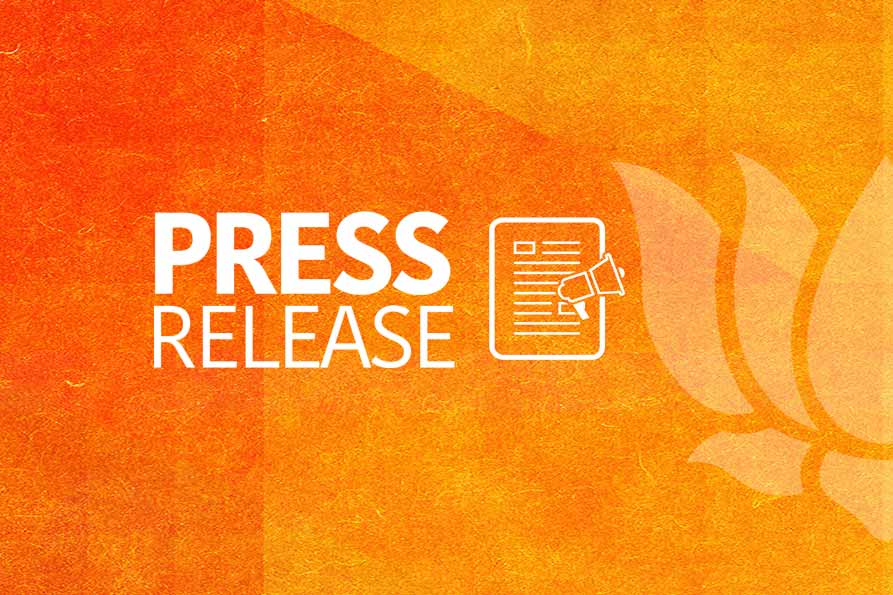
Member of Parliament
and
Member of the Indian Delegation
on
Agenda Item : 32
Comprehensive Review of the Whole Question of Peacekeeping
Operations in all their aspects
Fourth Commitee
60th Session of the
UN General Assembly
New York
October 24, 2005
 Mr Chairman,
Mr Chairman,I would like to begin by thanking Under Secretary General Guehenno, who has, as always, provided a lucid presentation of the overall situation relating to peacekeeping, as a precursor to our discussion on the "Comprehensive Review of the Whole Question of Peacekeeping Operations in all their aspects."
Let me also mention at the outset that my delegation supports the statement delivered by the distinguished representative of Morocco, on behalf of the Non Aligned Movement.
Mr Chairman,
While the statistics read out by Under Secretary General Guehenno In his presentation on 20 October were impressive indeed the UN is today contributing a total of 83,000 troops in 18 peacekeeping operations across the world this is, nevertheless, a sad commentary on us as a global community, that flashpoints are constantly on the increase around the globe. We would like to see a day when peace prevails all over, and we do not need even one peacekeeping operation of the United Nations. This may seem utopian today, but I say this, Mr Chairman, because we must continue in our efforts in preventing conflicts.
Mr Chairman,
The peacekeeping surge has brought new challenges and more demands. The old problems, however, still remain. We have said before and we will say so again that the main problems that beset peacekeeping are not a lack of resources or even personnel, but an un representative Council, which lacks the political will to act and when it does., in a manner that is entirely inadequate. The recent developments in the UN Peacekeeping Mission in Ethiopia Eritrea offer an example. It has been more than two weeks since the Eritrean Government imposed a ban on helicopter flights within its territory. The integrity of the Mission and the safety and the security of peacekeepers stand deeply compromised. The Council's working methods too are not satisfactory. It refuses to draw in Troop Contributors key players on the ground into the discussions that would lead to an optimal decision. Even, if it does, it does so in a manner that is sometimes close to perfunctory. In the recent instance of UNMEE, Troop Contributors were involved after the Council had met and deliberated on the issue. While there have been attempts by others, who are non permanent members, to utilise existing mechanisms of consultation, the overall situation is less than desirable. In the 2005 World Summit Outcome Document, Heads of State and Government had recommended that "'the Security Council continue to adapt its working methods so as to increase the involvement of states not members of the Council in its work, as appropriate, enhance its accountability to the membership and increase the transparency of its work," In the case under reference, this has quite clearly not been respected.
India has been a strong votary for enhanced interaction between the Security Council, the Secretariat and Troop Contributing Countries (TCCs). This was borne out from our own bitter experience in UNAMSIL, when the Council changed the mandate from a Chapter VI to a Chapter VII mission, without consulting the two largest contingents to that mission, India and Jordan, leading to their eventual, withdrawal. We have urged that TCCs, must be involved early and fully in all stages of mission planning, particularly when there is a rapid deterioration in the situation on the ground, which would threaten the safety and security of UN peacekeepers. We have argued that TCC meetings should take place much before the Council adopts or renews a resolution, so that the views of TCCs, if found reasonable, may find their way into mission mandates. Article 43 and 44 of the UN Charter lay down in Chapter VII, that the Security Council shall invite members providing armed forces "to participate in the decisions of the Security Council concerning the employment of contingents of the Member's armed forces." This is observed mostly in the breach. If the Charter provisions are not followed, if TCCs are not given a say in the evolution of Council mandates, Troop Contributors may have little option in the future but to pull out of operations where their units are forced to take on tasks that either cannot or should not be done.
The Council should also shore up its participation in peacekeeping operations; more than 80% of troops today in UN peacekeeping operations are contributed by the NAM. This is a distressing reflection on its willingness to share the burden of maintaining international peace and security, especially since it carries the primary responsibility in this regard as enshrined in Article 24 of the UN Charter.
While we are focussed on the specifics of refining tools of UN Peacekeeping, we would also need to keep the broader picture in mind. It is, indeed a sad spectacle that a variety of constraints, including most noticeably fiscal considerations, rather than the lofty goals enshrined in the UN Charter, now determine and circumscribe the peacekeeping activities of the UN. I am referring to the recent tendency to Lean towards regional solutions in peacekeeping, particularly in the context of Africa. While we do recognise that the UN cannot be everywhere, we must guard against such operations becoming franchised or sub contracted to a degree where the Security Council is perceived as using regionalisation as a device to shirk the exercise of its global responsibility for peace and security. It is our firm view that there cannot be a substitution of the UN's primary responsibility in this regard; it is the only universal Organisation with a legitimacy and moral authority that is unique and an experience and expertise that is unparalleled.
We have been preoccupied for the greater part of this year over the issue of sexual exploitation and abuse by UN personnel in peacekeeping missions. India has already endorsed the UN's policy of zero tolerance on the issue, and a manifestation was the commitment displayed by the India delegation at the extraordinary session of the C 34 held in April this year. We were willing to go further than many, especially those who would now like to suggest to the DPKO that 'offending nations' in peacekeeping operations should not be repeated. As a country with an impeccable track record and proven credentials, we would like to assure the Secretary General that we will continue to work vigorously towards full implementation of his recommendations on the issue.
Other important issues include the on going debate on enhancing the UN's capabilities to deploy rapidly and effectively and problems concerning the safety and security of UN peacekeepers. We have noted with interest that a Standing Civilian Police Capacity is ready to roll next year, albeit on a pilot basis, in order to facilitate early civilian police start up. We look forward, likewise, to resuming discussions on the Strategic Reserves concept, another recommendation that has flowed from the High Level Panel Report.
We fully subscribe to concerns about the safety and security of peacekeepers and associated UN personnel. [In the UNMEE case, the Security Council is not exactly advancing these.] These must, in all instances, receive the very high priority they deserve, in particular, in the field, where the problems are. We have noted that a comprehensive policy on Joint Operations and Joint Mission Analysis Centres (JOC/JMAC) is being developed, building on best practices from the field; a glaring lacuna, hitherto, has been the paucity of tactical information to the troops; we urge the DPKO to make a serious attempt to overcome this problem, so that information is available to the troops, and in real time. For too long, have our troops survived by their wits and managed with their own resources.
India has been a part of UN peacekeeping operations since its, inception in the 1950s. In Africa, starting with ONUC in 1960, the UN has sent peacekeeping forces into the Congo, Namibia, Somalia, Mozambique, Angola, Rwanda, Sierra Leone, Ethiopia-Eritrea, Libera, Cote D'lvoire, Burundi and now the Sudan, We have been in most of them, with brigades in the Congo and Somalia, and formed units, usually at least a battalion, in Mozambique, Angola, Rwanda, Sierra Leone, Ethiopia Eritrea and the Sudan. Nearly 70,000 Indian peacekeepers have so far served under the UN flag, and more than 100 personnel have made the supreme sacrifice to safeguard the honour of "Blue Helmets".
We think we have earned the right to speak frankly about the real needs of peacekeeping, to ask if what is being proposed addresses these, and to make suggestions that we do believe in. It is in this spirit that we have participated in the general discussions today.
I would also like to assure you, Mr Chairman, of my delegation's fullest support as we will continue to tackle the challenges of peacekeeping in 2006.
I thank you, Mr Chairman.
To Write Comment Please लॉगिन



.gif)





